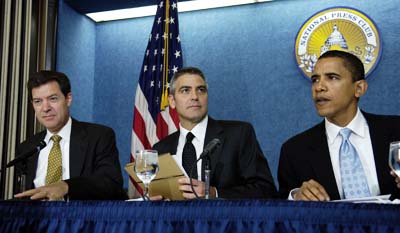
This op-ed co-authored with actor George Clooney originally appeared in USA Today.
The largest conventional war on the face of the earth in 2011 will occur in Sudan unless bold diplomacy led by the U.S. prevents it. The most dangerous tripwire will be in seven months, when southern Sudanese will vote to determine whether the South splits off and forms a new country. Some ruling party officials don't want to give up the oil-rich South without a fight. Southerners spilled a great deal of blood to win the right to opt out of Sudan, and they will keep fighting until they have their own state.
The last North/South war that ended in 2005 cost more than 2 million lives, and the Darfur conflict in Sudan's West has claimed over 300,000 more. Massive death tolls are the result of war tactics — principally by the government — that target civilians. Communities throughout Sudan have fought an authoritarian government to share in the country's power and wealth.
The good news is that this path to all-out war is unfolding in slow motion, and there is time to prevent it. The U.S. has a history of leading international efforts in Sudan, including helping to broker the 2005 peace deal. But the Obama administration has not taken a direct, leading role in the negotiations to avert renewed war in the South or to end the Darfur conflict. Furthermore, some U.S. officials believe that the United States has no leverage in Sudan.
Because of international sentiment that opposes sanctions and other forms of pressure, the U.S. shies away from creating any real consequences for Sudan's war crimes. And because activists and Congress strongly favor imposing such consequences, U.S. officials avoid serious discussion of peace incentives. We know; we've been a couple of those activists.
Click here to continue reading.

